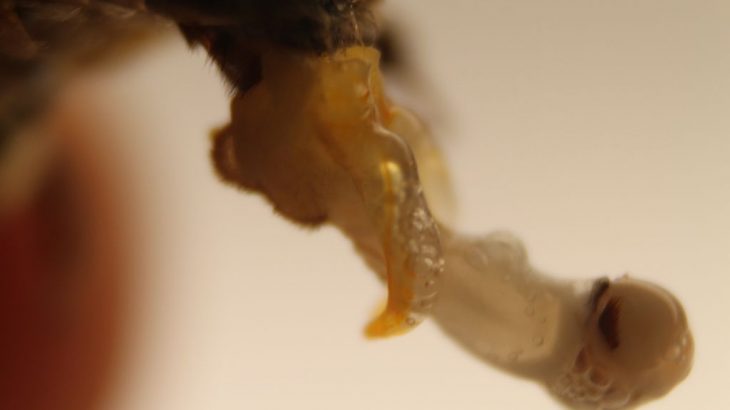Recap On Impact Of Neonicotinoids
Neonicotinoids have been the focal point of discussion when it comes to cause of the global decline of our pollinators. According to the EPA, Neonicotinoids are defined as a class of insecticides with a common mode of action that affects the central nervous system of insects, causing paralysis and death. By design, neonicotinoids were in fact, created to kill insects, yet industry continues to claim that these chemicals are not responsible for the global decline of our pollinators. In fact, they spend millions on public relations efforts to distract, mislead and distort the truth.
Due to their impact on agriculture, honeybees have been the subject of most research studies. The lack of abundant independent research on other species is also due to lack of funding. However, as more species decline due to exposure to these chemicals in rural and urban environments, it is getting harder to avoid the facts about the impact of neonicotinoids.

Photo: David Cappaert Mich State Univ, Bugwood.org_
Impact Of Neonicotinoids On Bee Sperm
Recently, new research was published focusing on the impact of neonicotinoids on male bees. While this may appear to be shocking news to some, it is not a surprise. In October of last year, a paper titled, Neonicotinoid Pesticides Severely Affect Honey Bee Queens was published by Geoffrey R. Williams, Aline Troxler, Gina Retschnig, Kaspar Roth, OrlandoYañez, Dave Shutler, Peter Neumann, and Laurent Gauthier.

Neonicotinoid pesticides severely affect honey bee queens. Figure 4. A marked queen returning to the entrance of a baby mating nucleus hive during experimental observations; arrow denotes mating sign (remnants of a male’s everted endophallus protruding from the queen’s vagina 20 )
Geoffrey R. Williams was also on the research team that conducted this newest research titled, Neonicotinoid Insecticides Can Serve As Inadvertent Insect Contraceptives.
Abstract
There is clear evidence for sublethal effects of neonicotinoid insecticides on non-target ecosystem service-providing insects. However, their possible impact on male insect reproduction is currently unknown, despite the key role of sex. Here, we show that two neonicotinoids (4.5 ppb thiamethoxam and 1.5 ppb clothianidin) significantly reduce the reproductive capacity of male honeybees (drones), Apis mellifera. Drones were obtained from colonies exposed to the neonicotinoid insecticides or controls, and subsequently maintained in laboratory cages until they reached sexual maturity. While no significant effects were observed for male teneral (newly emerged adult) body mass and sperm quantity, the data clearly showed reduced drone lifespan, as well as reduced sperm viability (percentage living versus dead) and living sperm quantity by 39%. Our results demonstrate for the first time that neonicotinoid insecticides can negatively affect male insect reproductive capacity, and provide a possible mechanistic explanation formanaged honeybee queen failure and wild insect pollinator decline. The widespread prophylactic use of neonicotinoids may have previously overlooked inadvertent contraceptive effects on non-target insects, thereby limiting conservation efforts.
Most neonicotinoid studies that employ honey bees have focused on workers, which are typically the non-reproductive females of the colony. Male honey bees have really been neglected by honey bee health scientists; while not surprising, these results may turn a few heads’, says lead author and doctoral student Lars Straub, Institute of Bee Health, Vetsuisse Faculty, University of Bern, Germany.
Listen To The Interview:
In this week’s segment of The Neonicotinoid View, host June Stoyer and Colorado beekeeper,Tom Theobald discuss new research on the impact of pesticides on bee sperm. To listen to the interview, press play on the video below.
“The Neonicotinoid View”, which is produced by The Organic View Radio Show is unique, weekly program that explores the impact of neonicotinoids on the environment. Tune in each week as June and Tom explore the latest research and news from the beekeeping community.
